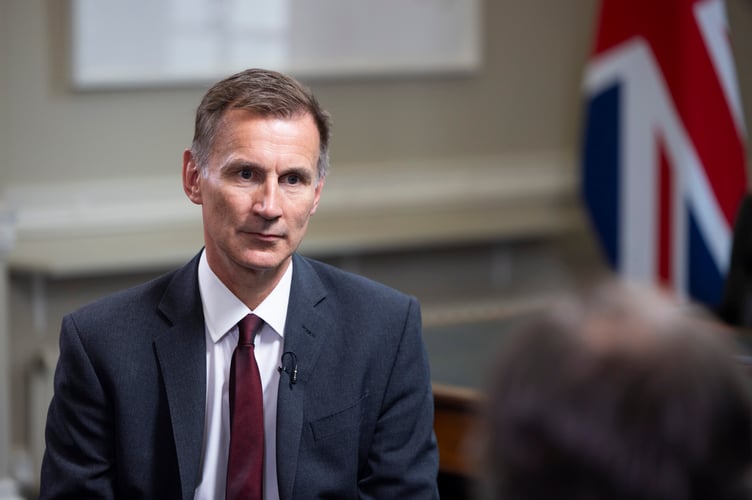The Bank of England has increased its interest rate for a 14th consecutive time to 5.25 per cent, from 5 per cent.
It is the highest the Bank's base rate has been since April 2008, two months after the nationalisation of Northern Rock was completed at the height of the 2008 credit crunch.
To give an idea of what a 0.25 per cent increase means for household budgets, on a £200,000 mortgage paid over a 25-year term, the rise means an additional £30 a month on mortgage payments, or £360 more a year.
This is on top of the approximate £300 extra a month the average borrower coming off a two-year fix was facing prior to the latest increase, announced on Thursday, August 3.
Six of the Bank of England's nine-member committee voted for the rise to 5.25 per cent. Two wanted a bigger rise to 5.5 per cent, while one wanted a cut to 5 per cent.
The Bank does though expect inflation – which currently stands at 7.9 per cent and is driving the increase in interest rates – to fall below 5 per cent in the final quarter of 2023.
The government has pledged that inflation will be 5 per cent or lower by the end of the year – but the overall target remains 2 per cent.
Few mortgage deals are set at the Bank of England's base rate – but it does influence the cost of borrowing.
Responding to the Bank's interest rates decision, Chancellor of the Exchequer and South West Surrey MP, Jeremy Hunt said: "If we stick to the plan, the Bank forecasts inflation will be below 3 per cent in a year's time without the economy falling into a recession.
“But that doesn't mean it's easy for families facing higher mortgage bills so we will continue to do what we can to help households."
Mr Hunt's treasury department says it is tacking inflation through:
- Steadfast support for the independent Monetary Policy Committee at the Bank of England as it takes action to return inflation to the 2 per cent target.
- Taking difficult, but responsible fiscal decisions to not add fuel to the fire.
- Supply-side measures including a package to boost labour supply, providing a boost to growth without irresponsibly fuelling inflation.
- Ministers keeping in close discussion with food producers and supermarkets about the cost of food, and following live Competition and Markets Authority reviews of the groceries sector.
- A Mortgage Charter, covering 90 per cent of the mortgage market, is helping people get through this difficult time by giving extra protections against repossessions and making it easier to manage monthly repayments.





Comments
This article has no comments yet. Be the first to leave a comment.